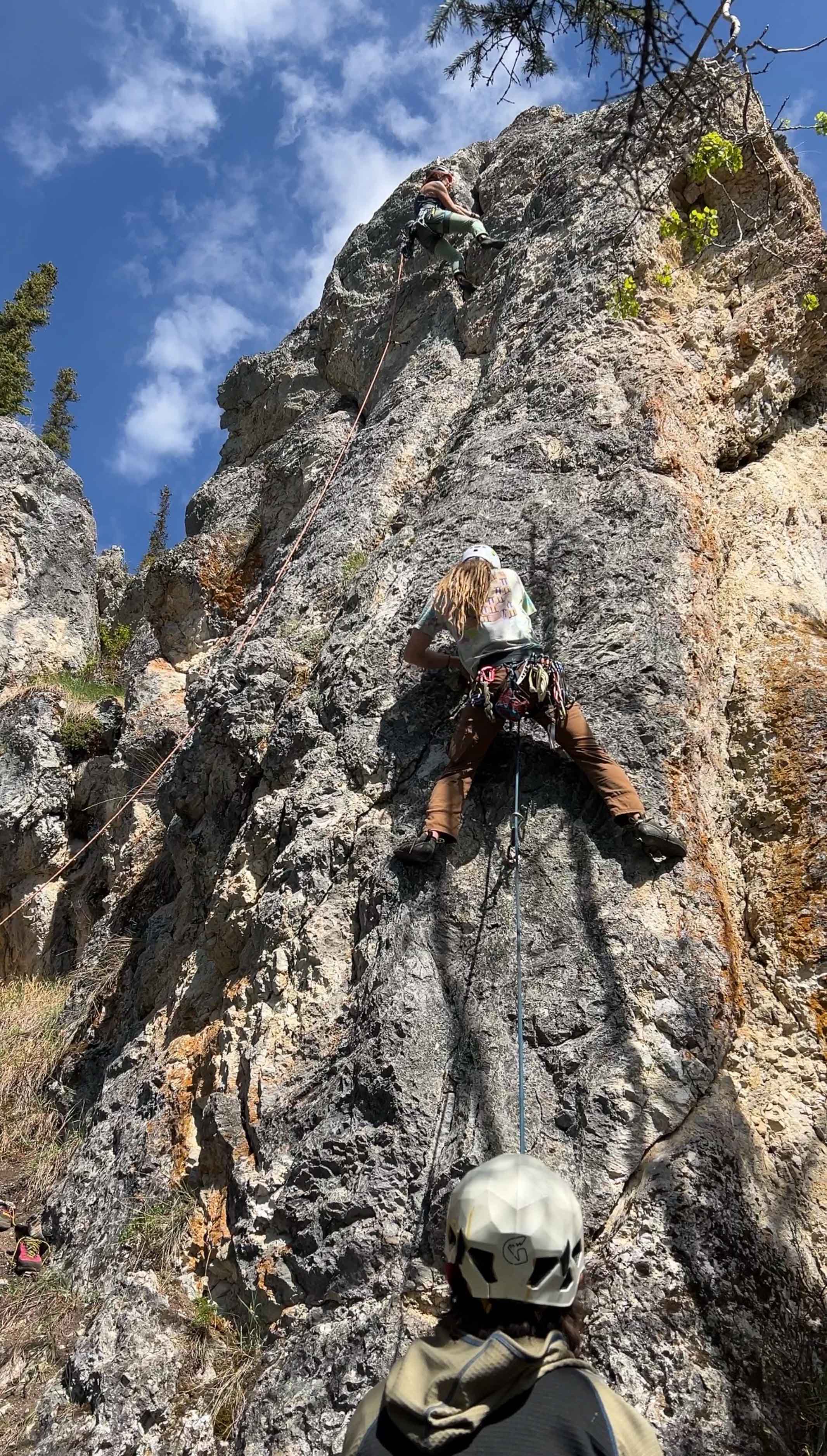Glen Woodworth applies his math prowess to tackling energy systems issues in Alaska

Glen Woodworth is a data science analyst at ACEP.
July 12, 2024
By Yuri Bult-Ito
Glen Woodworth has been a data science analyst on ACEP’s Data and Cyberinfrastructure Management, or DCM, team since this May.
Woodworth loves math. It tickles his brain. He also wants to contribute to a sustainable future for Alaska. While pursuing his master’s degree in mathematics last year, an opportunity opened up for him to combine both.
He initially joined ACEP in May 2023 as an applied mathematician, working exclusively on the synthetic microgrid project with Phylicia Cicilio, a research assistant professor with ACEP’s Power Systems Integration group at the time. He developed a method for producing a spatial network that connects a rural community’s buildings. This work culminated in a paper the team is preparing to submit to the Institute of Electrical and Electronics Engineers’ Open Access Journal of Power and Energy.
Woodworth impressed the team as a fast learner who is willing to dive into new things with little instruction.
Currently, his main focus is on learning powerful modeling software, such as HOMER Pro and PLEXOS. Using HOMER, short for Hybrid Optimization Model for Multiple Energy Resources, Woodworth can attempt to run simulations for a variety of possible combinations for a piece of equipment. PLEXOS will let him unify his data streams of any scale or level of details into a single, unified modeling or forecasting platform. His proficiency on the software will play an important role on the PSI projects such as modeling possible expansions of a microgrid for rural community in Alaska.
“And I will add that his solutions have been filtering back into other things that DCM team members are working on,” said Liz Dobbins, the data analysis and collection lead of the DCM team.
For example, Woodworth created a database of buildings along the Alaska Railbelt electric power transmission system. Commonly known as the Railbelt, the state’s lone transmission system spans roughly 700 miles from Fairbanks in the Interior to the Kenai Peninsula in the south, supplying electricity to 75% of Alaska’s population.
To build this database, Woodworth needed to learn a different system for acquiring data from every different borough. To solve this complex issue, he dove into learning Nominatim, the geocoding software that powers the official Open Street Maps sites — a collaborative project that provides map data for various platforms and purposes. Woodworth figured out how it worked on his own, and is now sharing his knowledge with other members of the team.
“We are lucky that [Glen] is able to apply his mathematical background in graph theory to real-world environments like powerlines, inverters and transformers,” Dobbins said.

Glen Woodworth, middle, climbs Lost in the Ozone during Tumble in the Tundra at Lower Grapefruit Rocks in 2024.
Woodworth received his M.S. in mathematics from UAF in December 2023, and a B.A. in philosophy and mathematics from the University of Montana in 2019. In addition to being a math instructor and tutor, he has worked as a lifeguard and swim instructor and as a youth mentor.
Outside of work, Woodworth enjoys climbing, no matter the season. If you would like to go climbing or just try it out, he would love you to get in touch with him.
He is also a cycling enthusiast. He recently bought a downhill mountain bike and is looking forward to riding Ester Dome this summer. In addition, he occasionally skateboards and has recently discovered a love for surfing.


